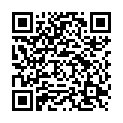|
|
|
| Module code: KIB-RP |
|
|
2S (2 hours per week) |
|
2 |
| Semester: according to optional course list |
| Mandatory course: no |
Language of instruction:
German |
Assessment:
Presentation
[updated 23.09.2025]
|
BMT2591.RPR (P222-0038) Biomedical Engineering, Bachelor, ASPO 01.10.2018
, optional course
BMT2591.RPR (P222-0038) Biomedical Engineering, Bachelor, SO 01.10.2025
, optional course
EE-K2-554 (P222-0038) Energy system technology / Renewable energies, Bachelor, ASPO 01.04.2015
, optional course
E2587 (P222-0038) Electrical Engineering and Information Technology, Bachelor, ASPO 01.10.2018
, optional course
KIB-RP (P222-0038) Computer Science and Communication Systems, Bachelor, ASPO 01.10.2021
, optional course, not informatics specific
KIB-RP (P222-0038) Computer Science and Communication Systems, Bachelor, ASPO 01.10.2022
, optional course, not informatics specific
MAB_19_4.2.1.36 (P222-0038) Mechanical and Process Engineering, Bachelor, ASPO 01.10.2019
, optional course
MST.RPR (P222-0038) Mechatronics and Sensor Technology, Bachelor, ASPO 01.10.2020
, optional course, non-technical
PIB-RP (P222-0038) Applied Informatics, Bachelor, ASPO 01.10.2022
, optional course, not informatics specific
PIB-RP (P222-0038) Applied Informatics, Bachelor, SO 01.10.2026
, optional course, not informatics specific
|
30 class hours (= 22.5 clock hours) over a 15-week period.
The total student study time is 60 hours (equivalent to 2 ECTS credits).
There are therefore 37.5 hours available for class preparation and follow-up work and exam preparation.
|
Recommended prerequisites (modules):
None.
|
Recommended as prerequisite for:
|
Module coordinator:
Studienleitung |
Lecturer: Studienleitung
[updated 01.10.2022]
|
Learning outcomes:
Communication skills are now considered fundamental to technology-oriented professional practice and personal development.
In this course, students will be introduced to the basics of rhetoric and presentation for technical professions. Individual coaching will promote studentsí verbal and nonverbal communication skills and strengthen their personal development. This module is highly practice and training-oriented. It offers a mixture of lectures, individual and team work tasks and targeted individual training.
After successfully completing this course, students will have deepened, consolidated and expanded the following competences:
* Finding/strengthening their own style of communication
* Structuring and coordinating technical and target group-specific information
* Developing/consolidating their own rhetorical and presentation skills
* Assessing communication partners and situations
* Giving and receiving feedback
* Using presentation techniques effectively
[updated 23.09.2025]
|
Module content:
1. Principles of rhetoric and presentation
2. Planning a presentation (organization/check list)
3. Content concept (order/structuring information)
4. Rhetorical practice (stylistic devices/argumentation strategies)
5. Visualization concept (working with media, designing slides)
6. Procedure (structure, phase structure)
7. Video- assisted individual training (promotion of verbal and non-verbal communication)
8. Dealing with disruptions (dealing with disruptions and conflicts)
[updated 23.09.2025]
|
Recommended or required reading:
No specific reading knowledge is required for this module. Regular attendance and willingness to train are however important.
Background information is provided in a number of selected publications:
Fey H. u. G.: Sicher und überzeugend präsentieren. Walhalla 1998
Lackner T.: Die Schule des Sprechens. Rhetorik und Kommunikationstraining. Öbv & Hpt, 2000.
[updated 23.09.2025]
|
Module offered in:
WS 2024/25,
WS 2023/24
|


